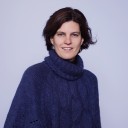The so-called 'Digital Turn' has implied major changes in scientific communication and methodology, impacting all areas of research to various degrees. For example, in migration studies, digital data enable new methods through the development and use of digital tools. Accordingly, there is now a wide range of digital approaches that complement or even challenge traditional methodologies of how to do historical research on migration. Moreover, the ever-growing availability of digital data, including digitized repositories and archives, has provided researchers working in fields such as migration history, historical demography, and economic, urban and oral history (to name but a few) with new perspectives leading them to challenge traditional positions and even explore new questions.
The aim of this panel is to explore the interaction of those parameters having an impact on the different strategies, critical reflections, digital methodological approaches and tools in historical research on migration. In line with the theme of IMISCOE 2021 ‘Crossing borders, connecting cultures’, this panel concentrates on theories, concepts and methods in historical research on migration with a specific focus on ‘the digital’. The panel will bring together prominent researchers in the field of digital migration researching the past, whether or not inspired by insights and methodologies of neighbouring disciplines, such as, but not limited to, sociology, anthropology, political science, legal studies, and cultural and gender studies.
We therefore welcome contributions that address the following and related themes:
- Theoretical reflections on digital transdisciplinary approaches to historical research of migration;
- Contributions to the application of digital approaches to migration research from a historical perspective;
- Contributions dealing with historical digital data in migration research (such as corpora, digital editions, catalogues, computational annotation, text collections, census data, etc.);
- Contributions dealing with the nature and implications of studying diverse forms and processes of historical migration in the digital space;
- Contributions examining the relationships between research on historical migration in the digital age and more critical reflections about the contours and definitions of ‘digital’;
- Contributions developing innovative and creative methods to analyse and study historical migration through digital data.
The panel’s organisers are Dr Lorella Viola (C²DH - University of Luxembourg) and Prof. Machteld Venken (C²DH - University of Luxembourg). Each speaker will be allocated 15 minutes + 10 minutes for discussion. There will also be a ‘lightening talk’ session, in which PhD students and early-career scholars will have the chance to present their ongoing empirical research and receive feedback from the panelists and the audience. We therefore also welcome contributions from PhD students and early-career scholars. Proposals should include paper title, the presenter’s name, contact information, and institutional affiliation and should be of no more than 500 word long (including references). Please send your contribution for consideration to lorella.viola@uni.lu by 20 November 2020 at the latest.
There is funding available to cover the conference registration fees of successful applicants. Up to eight selected papers will also be included in a Special Issue for publication.
IMISCOE is Europe’s largest research network of migration and integration scholars and practitioners. The 2021 conference proposes to zoom deeper into people’s migration experiences by foregrounding how migration is connected to culture and language, how it is lived, experienced, mediated, and reflected in general and through cultural, linguistic and artistic practice.
We look forward to receiving your contributions.




